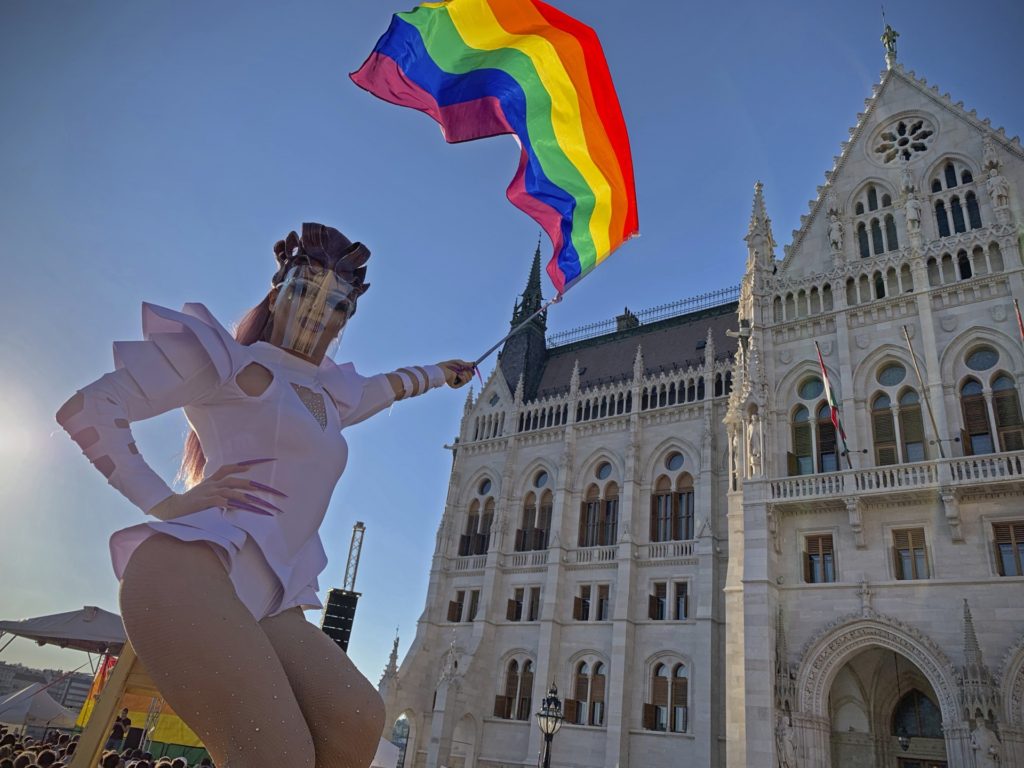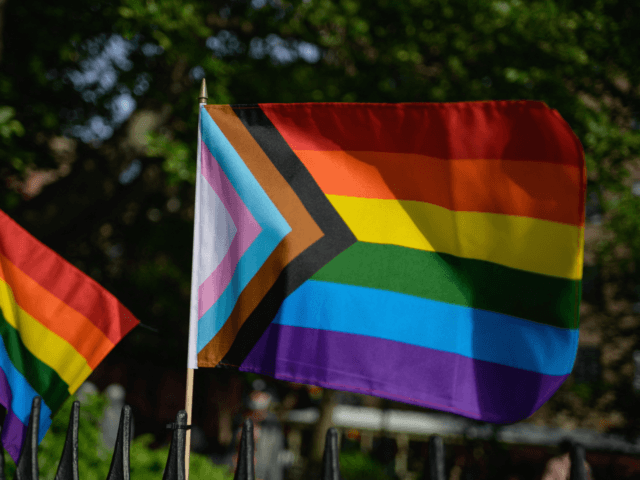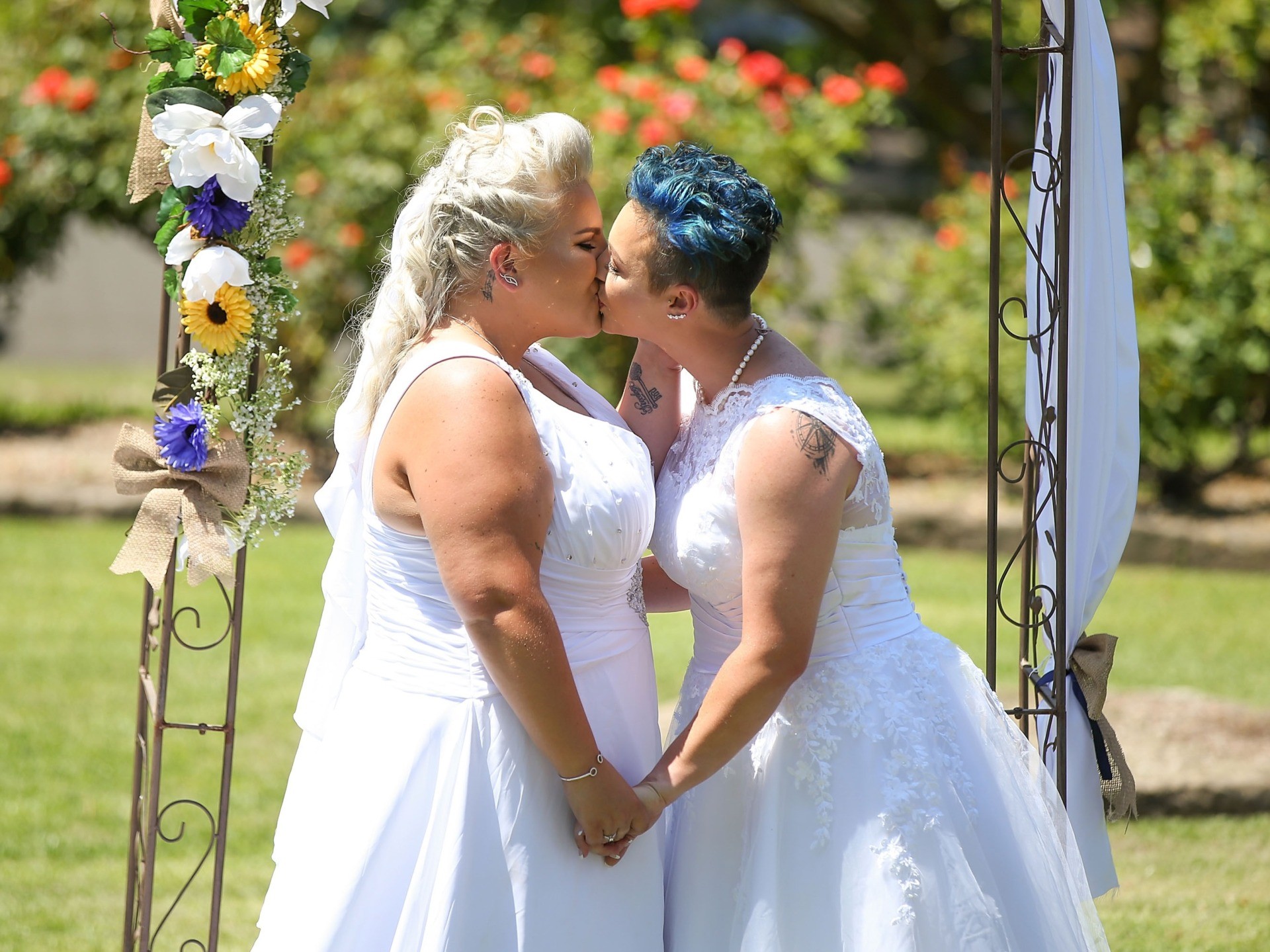The Democratic Party is establishing itself as the anti-gay party as it uses and subordinates gays for its own political ends – creating the “LGBTQQIP2SAA” banner that drafts homosexuals for political battles which have nothing to do with them and reverses their hard-fought progress on equality 40 years in the making.
The most obvious political battle is the party’s effort to normalize the transgender claim. Homosexuals have nothing to do with gender ideology or transgender advocacy — yet there is an effort by the Democrats to somehow make the case that “trans rights” are the next iteration or extension of gay rights.
Everyday gays and lesbians — those who focus more on taxes, crime, and schools than gay pride parades — gain nothing as they are forced by Democrats into a painful and embarrassing political war that seeks to conquer more social status and political power for “gender” than they ever sought for their own same-sex relationships.
Gay people have been grouped together into a broader community with those whose experience has nothing to do with them, and whose experience actually undermines the gay experience.
The premise of transgender philosophy is that “sex” is not a relevant reality — that “gender” is what is relevant, and that gender is fluid, changing, subjective, a feeling or form of expression more than it is a physical reality — but that chosen “gender” is an absolute truth, regardless of sex.
However, this point runs counter to the gay experience, and actually aligns with a common misconception that is often used in anti-gay arguments, namely among advocates of conversion therapy.
The homosexual experience hinges on gender being fixed and dependent on biological sex; compatibility is dictated first and foremost by the sex and corresponding, immutable gender, and that there be no distinction between the two.
There being a clear and obvious answer to the question “what is a woman?” matters to a lesbian.
If being “male” or “female” were merely a philosophical concept and not necessarily relevant, then the logical conclusion from there would be that homosexuality is basically just an attitude, and a choice.

In this file photo dated June. 14, 2021, an unidentified drag queen waves a rainbow flag during an LGBT rights demonstration. (AP Photo/Bela Szandelszky)
If “male” or “female” isn’t real, then what is homosexuality, other than a lifestyle decision? If “male” or “female” is just a social construct, then why wouldn’t a partner be selected based on ability to start a biological family, which is the ultimate point of partnership and biological life itself?
Those questions are ones that gay rights advocates have spent decades answering; refuting the assumption by straight critics that biological sex or gender doesn’t need to be the be-all and end-all, that homosexuals should be able to make it work regardless of sex or gender, if they just adjust their attitude.
“The denial of biological sex … erases homosexuality, as same-sex attraction is meaningless without the distinction between the sexes,” wrote biologists Colin M. Wright and Emma N. Hilton in an op-ed for the Wall Street Journal, titled “The Dangerous Denial of Sex.”
“Many activists now define homosexuality as attraction to the ‘same gender identity’ rather than the same sex. This view is at odds with the scientific understanding of human sexuality. … The successful normalization of homosexuality could be undermined by miring it in an untenable ideology,” their op-ed adds.
The Democratic Party has embraced the “alphabet” ideology as a result of pressure from the political lobby — morphed from “Gay Inc.” to a broader “LGBT,” “LGBTQ,” “LGBTQQ” … and finally “LGBTQQIP2SAA” — which began expanding to a larger “community” in response to the original missions of the gay movement being accomplished.
As homosexuality first became decriminalized, then achieved broader social tolerance and acceptance, raised awareness and got more resources devoted to AIDS research, then achieved equal partner benefits, then the legalization of adoption by gay couples, and eventually the federal legalization of gay marriage, the political machine needed new grievances to maintain massive fundraising off of. The political lobby couldn’t just close up shop and go home once it achieved what it set out to, not while so much money was being raised.
But as the political lobby metastasized it began diluting and eventually forgetting the people it originally formed to represent — gays and lesbians.
That lost awareness is now most apparent in the push to inject gender ideology and sexuality education in school curricula for young children, in the name of the “LGBTQQIP2SAA” crusade, which takes the gay struggle back over 40 years.
In the 1960s and 70s, even into the 80s, there was a common belief that homosexuals were child predators — a reaction to radical gay rights activism and bolstered by junk science.
In response, there was a concerted push by moderate gay-rights authors and groups to temper the conversation on their side, as well as respond to the unfounded accusations that homosexuality was threatening to American family values or children.
For instance, in 1995, gay author Andrew Sullivan published “Virtually Normal,” where he simultaneously critiqued elements of the gay-rights movement, the anti-gay rights movement, and also made a case for same-sex marriage and the abolition of “don’t ask, don’t tell” — using what was called, at the time, a “defense of a moderate gay activist position” that was palatable to the mainstream.
“[Politics of homosexuality’s] goal … is simply to ensure that the liberal state live up to its promises for all its citizens. It would seek full public equality for those who, through no fault of their own, happen to be homosexual,” Sullivan writes of the aim of his politics:
This politics affirms a simple and limited principle: that all public (as opposed to private) discrimination against homosexuals be ended and that every right and responsibility that heterosexuals enjoy as public citizens be extended to those who grow up and find themselves emotionally different. And that is all. No cures or re-educations, no wrenching private litigation, no political imposition of tolerance; merely a political attempt to enshrine formal public equality.
The work renewed and galvanized public conversation around homosexuality and its place in society, receiving mixed reviews at the time, but widespread reaction nonetheless. Sullivan’s work would go on to bolster the next wave of conversation around gay rights, dispelling much of the hysteria around it and buttressing the central argument — there was no will to impose on others, sue, force, approach minors – that all this was just a crusade for equality.
Fast forward to 2022, and homosexuals have been reeled back into defending themselves from the assumption that they represent an attack on the family and children, but not because of an issue that has anything to do with them.
The “LGBTQQIP2SAA” lobby – of which gays and lesbians represent 2 out of 12 letters in the acronym – is, for instance, pushing for children to be introduced to radical gender ideology by teachers, which was never part of any set of goals having to do with homosexual equality.
In response, sensible child-protection laws such as the Stop Woke Act in Florida, have been made out to be an attack on “gays,” with the most prominent Democratic Party opponents of the bill using “gays” as an attack line.
Former Secretary of State Hillary Clinton said last week on her podcast, You and Me Both with Hillary Clinton, that the average American “should go around saying gay all the time,” in protest of the Florida bill that protects children from completely inappropriate conversations about sex and “gender identity” with adults who aren’t their parents.
“I think people have to stand up to [the Stop Woke Act]. The idea ‘don’t say gay,’ I think people should go around saying ‘gay’ all the time,” Clinton said to her guest, comedian Kate McKinnon.
McKinnon said, “Let’s say it now,” then she and Clinton said, “Gay, gay, gay.”
Florida Senate Democrats also released a video last month in response to the law, showing Democratic lawmakers parading around chanting “gay” over and over, with one of them screaming, “my daughter’s gay.”
Aside from the approach by Democrats being patronizing, cringe, and humiliating, the crusade to expose young children to inappropriate sexual material departs so radically from any aim of the gay-advocacy movement that their inclusion of gays in it makes absolutely no sense. Amorphous 12-letter-acronym initiatives such as this have exactly nothing to do with gay and lesbians’ interests, but yet drags gays back into a debate that ended 20 years ago because of their supposed membership in a meaningless “community.”
And data is already showing how the damage to social acceptance of homosexuals as a result of their recent inclusion in aggressive “LGBTQQIP2SAA” political crusades is manifesting, especially among younger age groups.
Data compiled by GLAAD and released in 2019 showed:
This year’s Index found the number of young Americans ages 18-34 who are comfortable [with LGBTQ people] dropped from 53% to 45%, the second consecutive year that this age group has shown a drop … This reflects a continued erosion in comfort among this age group over the past two years. This year, the significant erosion is being driven by females ages 18-34, where comfort levels fell from 64% last year to 52% this year.
What is emerging is a neo-oppression of gays in public life — this time, not by traditional sources, but by the Democratic Party and its increasingly prominent radical elements.
The homosexual community is again in a position where it has to seize the narrative back from people who do not fully understand the gay experience, who are seeking to undermine the gay experience, assign motives to the gay experience that don’t exist, and preserve the hard and long-fought rights that so many worked so hard to achieve.
The Democratic Party is using the gay community as tools in a greater political effort that is paining to convince them that those achievements weren’t enough, weren’t real or valid enough, and in doing so are depriving them of enjoying their most tremendous victory — namely the ability to live their life totally freely.
And as they didn’t settle for anything less in the past, they must not settle for anything less today.
Emma-Jo Morris is the Politics Editor at Breitbart News. Email her at ejmorris@breitbart.com or follow her on Twitter.


COMMENTS
Please let us know if you're having issues with commenting.